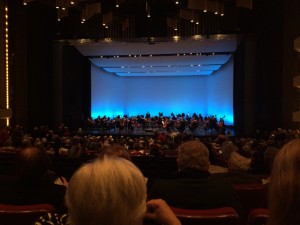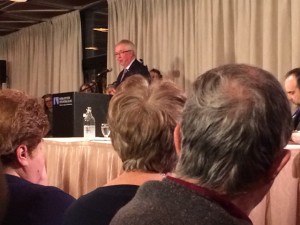The House of Commons is back today after the Christmas break, and you can pretty much guarantee that there will be a level of awfulness to the discourse, because that’s where things are right now. In fact, when asked over the weekend, former prime minister Joe Clark correctly noted that the House of Commons is “more a stage than an institution” these days. You’ve heard me bang on about this more times than I can count, but it bears repeating—MPs are no longer debating ideas. They are reciting prepared talking points into the record, because those are being used to generate clips for social media. It’s not even for the benefit of news media anymore, like it used to be (which caused its own particular problems with how QP works), because they all think they can just bypass legacy media and speak directly to their own audiences over their socials.
It’s no longer politics—it’s theatre. Bad theatre. The kind where people can’t even memorise their lines, but are full-on reading the script in front of them during the performance, not even on cue-cards that are far enough in the distance, and most of them can’t even be ashamed of their own amateurishness as they adhere to their party’s message, do what is expected of them, and continue to pretend that this is all normal.
And that’s why our democracy is in trouble.
Ukraine Dispatch:
Security officials in Ukraine say that defence ministry officials conspired with employees from an arms firm to embezzle nearly $40 million that was earmarked to buy mortar shells. President Volodymyr Zelenskyy has disclosed his own income as part of a drive for transparency and combatting corruption.
UK Defense Ministry: Increase in arson attacks at Russian enlistment offices likely signals 'disaffection' amid war, potential mobilization.
The doubling of arson attacks on Russian enlistment offices in the past six months is likely attributed to a "greater sense of…
— The Kyiv Independent (@KyivIndependent) January 29, 2024
"When we are no longer able to change a situation – we are challenged to change ourselves."
Viktor E. FranklThe combat losses of the enemy from February 24, 2022 to January 28, 2024. pic.twitter.com/00iw1x1RyM
— Defense of Ukraine (@DefenceU) January 28, 2024


